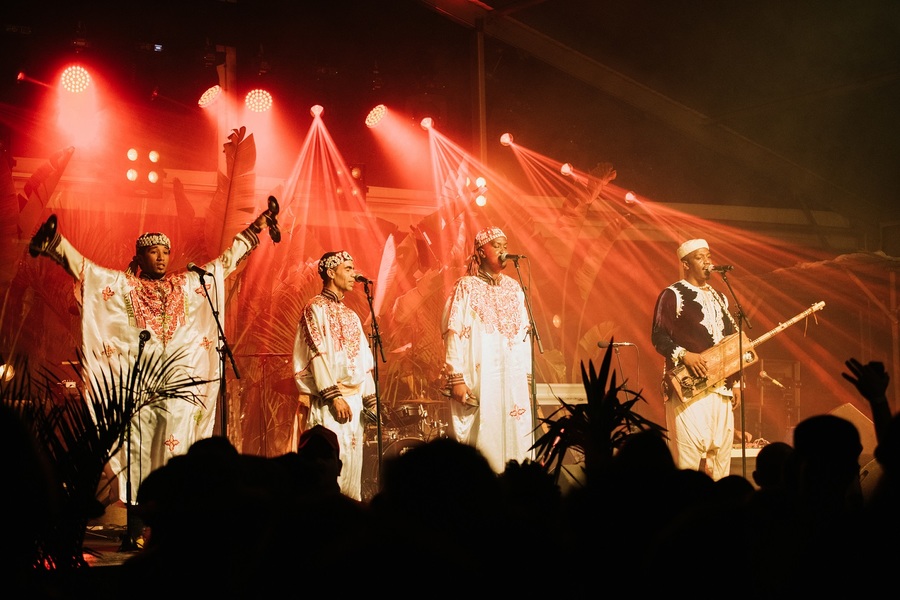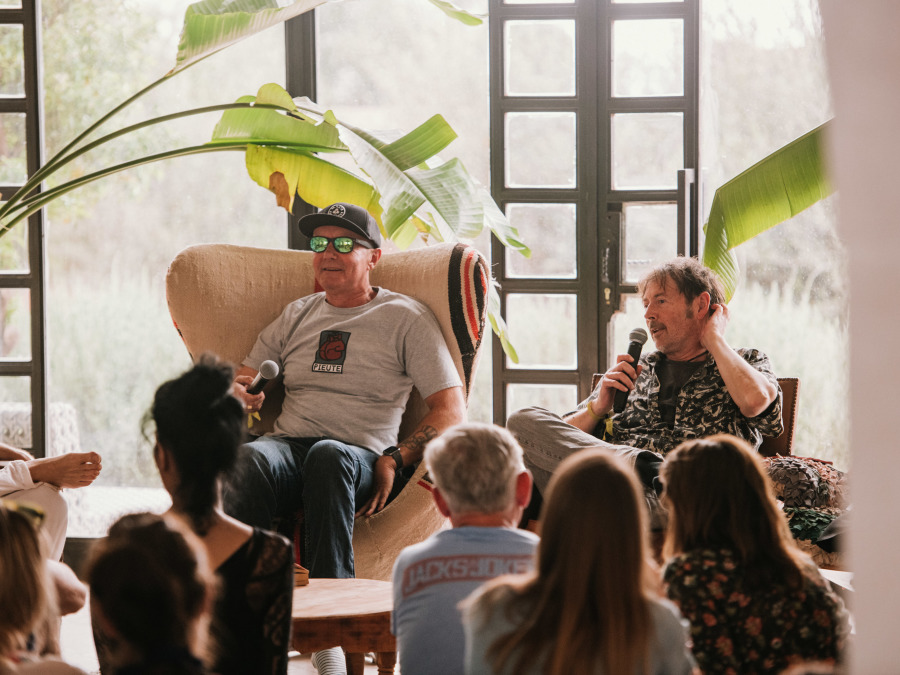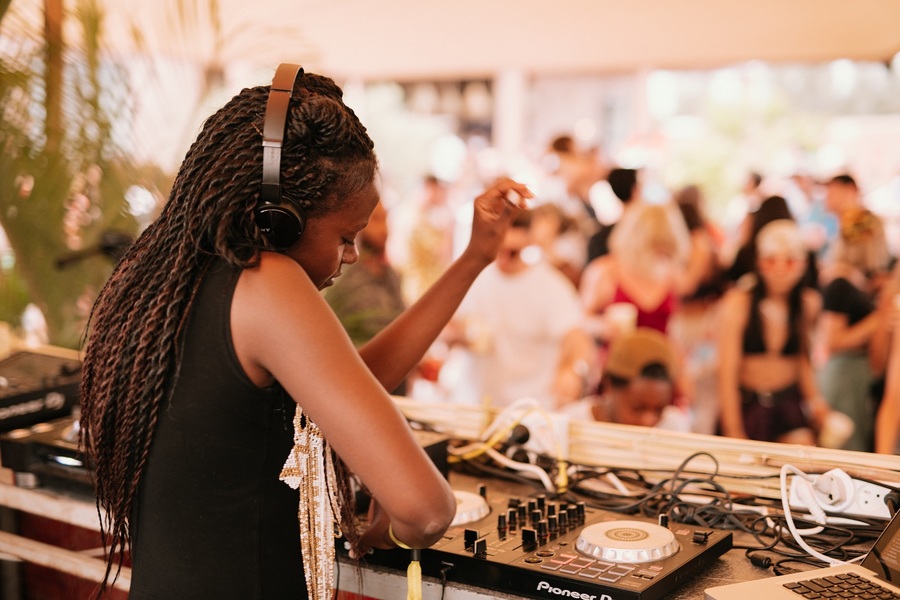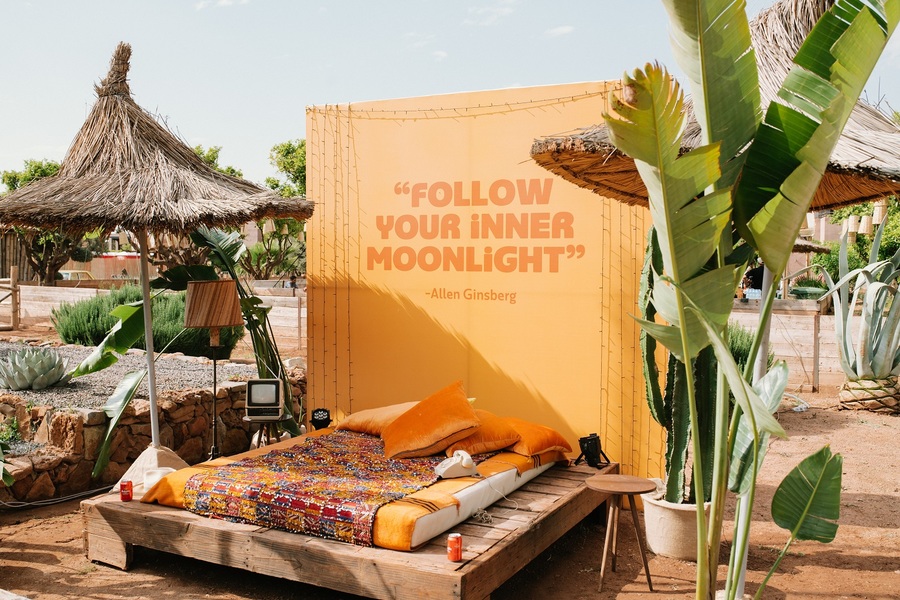Beat Hotel: 2019 Review
Set in a 72-acre boutique hotel on the outskirts of Marrakech, the inaugural Beat Hotel is an ambitious blend of DJs, live acts, literary icons and culinary outlandishness
Burroughs once described Morocco as being "one of the few places left in the world where, so long as you don't proceed to robbery, violence, or some form of crude, antisocial behaviour, you can do exactly what you want." Granted, he was referring to the port city of Tangier, but 530 miles south in the foothills of the Atlas Mountains, a four-day festival is doing its best to recapture the Beat Generation’s fertile relationship with the Arab world.
The Beat Hotel, taking its name from the 'class 13' Paris hotel frequented by Burroughs, Ginsberg, Kerouac et al in the late 50s, has built a reputation as one of Glastonbury’s most cherished standalone stages. Its first international endeavour sees the brand set up camp in a sprawling boutique hotel on the outskirts of Marrakech. With no fewer than five palm tree-lined pools, the lavish yet relaxed setting couldn’t be further removed from the bustling Medina just a few miles to the north. While the line-up, a well-balanced mix of African and European artists, DJs and live acts, paves the way for a fruitful cultural exchange.
The first day proper sees whisky brand Ballantine’s and Gilles Peterson’s Worldwide FM join forces to host the Stay True Africa stage: a gazebo-covered DJ booth, speaker stack and makeshift dancefloor playing host to some of the continent’s most exciting selectors. Here, Nairobi DJ Coco Em serves up the kind of pan-African bass that has found its way onto countless European dancefloors of late. Her upbeat, highly danceable selections are an ideal pairing for the searing Moroccan heat.
She precedes contagious Zanzibari singer-songwriter Mim Suleiman, who takes to the floor and immediately demands the sound guys "give the volume to the people! I feel like I’m performing in my kitchen right now!" Later the pint-sized Suleiman can be seen expertly positioning an inflatable flamingo on her head to the delight of the crowd, multitasking while singing her infectious track Mingi to rapturous applause.
Also on the bill are a plethora of European artists that embody a modern-day interpretation of Beat, none more so than Andrew Weatherall. The enigmatic veteran DJ plays a rare all-reggae set on the penultimate day, with an uncharacteristic bout of heavy rain doing little to dampen the spirits. Equally impressive is London-based DJ and producer Nabihah Iqbal, who bravely reaches for Tarântulas’ Saiba Ser Feliz – a Brazilian boogie version of the Michael Jackson hit Don’t Stop ‘Til You Get Enough – in the early stages of her set, before succumbing to the groove and serving up a flurry of feel-good, hands-in-the-air house.
Later in the day, Weatherall reappears in the Literary Corner alongside wildly charismatic Glaswegian author David Keenan for an engrossing discussion on music and mythology. Keenan reads an excerpt from his 2017 novel This is Memorial Device – which tells the tale of the fictional avant-garde post-punk scene of Airdrie and Coatbridge – with Weatherall enthusing that it "encapsulates a lifestyle that’s becoming increasingly difficult to fulfil due to welfare cuts and exorbitant rents."
Similarly enthralling is the literary firebrand tag team of Irvine Welsh and DBC Pierre who take turns reading excerpts from their previous work. Welsh goes full Francis Begbie to the crowd’s amusement as he reads a particularly sweary section from Trainspotting sequel Porno, before Pierre roundly concludes that the Literary Outlaws tagline that the talk is marketed as "sounds like a load of bollocks."
Yet the festival’s finest moment comes when complex North African polyrhythms collide with Beat spirit in the form of the genuinely moving collaboration between James Holden and Maâlem Houssam Guinia. Performing with his live band, Guinia offers a transcendental, deeply personal insight into the Moroccan ceremonial music genre known as gnawa, with Holden, seated at the back of the stage, complementing the group’s performance with his own minimalist modular synth workings.
In amongst the revelry there are sadly a few logistical issues – none more testing than the unreliability of the shuttle buses tasked with shifting festivalgoers from the Medina to the hotel 20 minutes south. While the sight of hotel staff hurriedly adding the finishing touches to the festival site on the first couple of days suggested time may well have ran out during preparation. Nevertheless, the inaugural Beat Hotel successfully recaptured the anything goes vibe of its flagship Glastonbury stage, setting the foundations for something truly special in the process.



